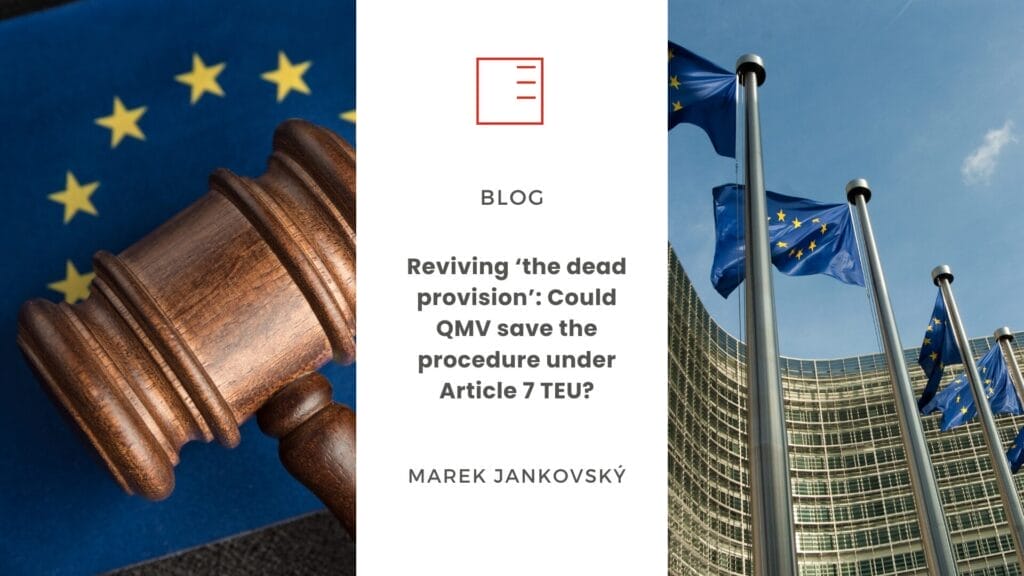
Blog | Reviving ‘the dead provision’: Could QMV save the procedure under Article 7 TEU?
More info 21. 12. 2024
21. 12. 2024
With the ongoing debate on EU enlargement, the question of Treaty revision to ensure the EU’s actionability in the future is on the table. While some member states believe that the current state of the Treaties is fitting for a Union of 35+ members, others call for Treaty revision before enlargement. In 2022, the European Parliament took the discussion a step further by passing a resolution suggesting far-reaching revisions to the Treaties. Writes Marek Jankovský, an intern at EUROPEUM's Brussels office.
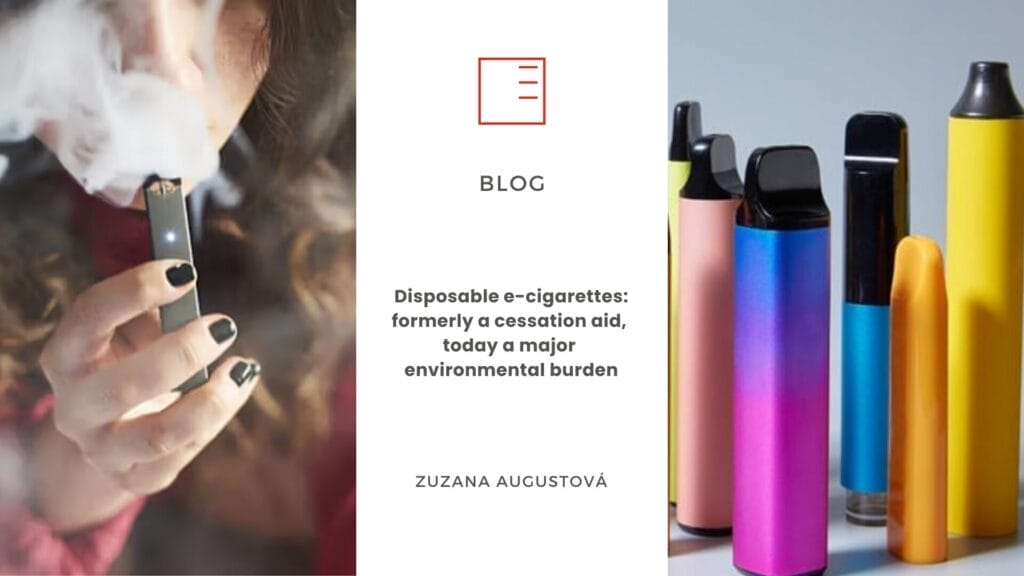
Blog | Disposable e-cigarettes - formerly a cessation aid, today a major environmental burden
More info 20. 12. 2024
20. 12. 2024
The problem of disposable electronic cigarettes, also known as vapes, is the subject of a blog by Zuzana Augustová. In it, the author describes the negative health effects, noting the easily addictive nature, especially for young people. She also looks at the environmental impact of these products, as they are made up of materials that cannot be easily recycled, and throwing them in the garbage can cause fires and leaks of harmful substances. It then uses the example of the UK to show how the government is attempting to tackle the problem through legislation, including a planned ban on their sale.

Blog | The gender dimension of EU development policy: The Case of Namibia
More info 19. 12. 2024
19. 12. 2024
Namibia has the largest gender gap in Africa. This blog analyses the European Union's development policy focusing on the gender dimension. Critics argue that the European Union's focus on gender equality in development policy is superficial; the blog also examines whether this criticism remains valid. Simona Krammerová in her blog also highlights key issues facing women in Namibia.

Blog | Revolution on the roads: Will we all drive on batteries?
More info 18. 12. 2024
18. 12. 2024
The blog focuses on the impact of internal combustion engines on transport emissions and the transition to electromobility as a key measure to reduce emissions. The transport sector is the second largest CO2 emitter in the EU, with passenger cars accounting for 60% of emissions. The European Union has decided to end the sale of new vehicles with internal combustion engines by 2035 and is promoting the switch to electromobility as a means to achieve climate neutrality by 2050. In the blog, Zuzana Valachová, an intern at EUROPEUM's Prague office, discusses the benefits and challenges of the plan, including its environmental, economic and social impacts, as well as the reactions of the automotive industry and concerns about competitiveness.
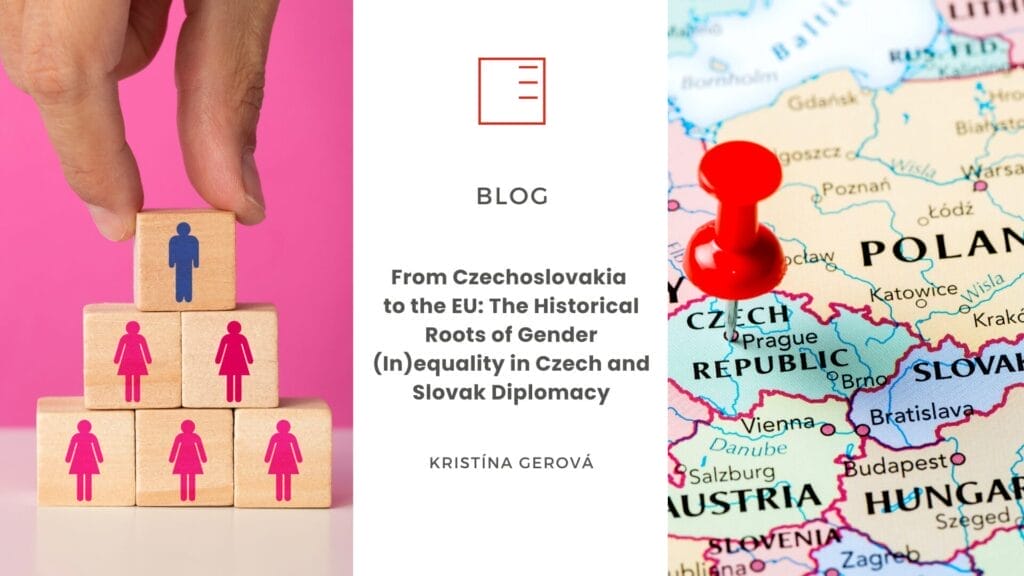
Blog | From Czechoslovakia to the EU: The historical roots of gender (in)equality in Czech and Slovak diplomacy
More info 16. 12. 2024
16. 12. 2024
Year 2024 is likely to be seen as a key year for women's leadership in the EU. Ursula von der Leyen will continue her role as President of the European Commission, Roberta Metsola will lead the European Parliament and Kaja Kallas will head the EU's diplomatic service. This signals a stronger commitment to addressing the gender imbalance across the EU and this momentum can be expected to drive further efforts to promote equality in the years to come. Kristina Gerová, an intern at EUROPEUM's Brussels office, writes in her blog.
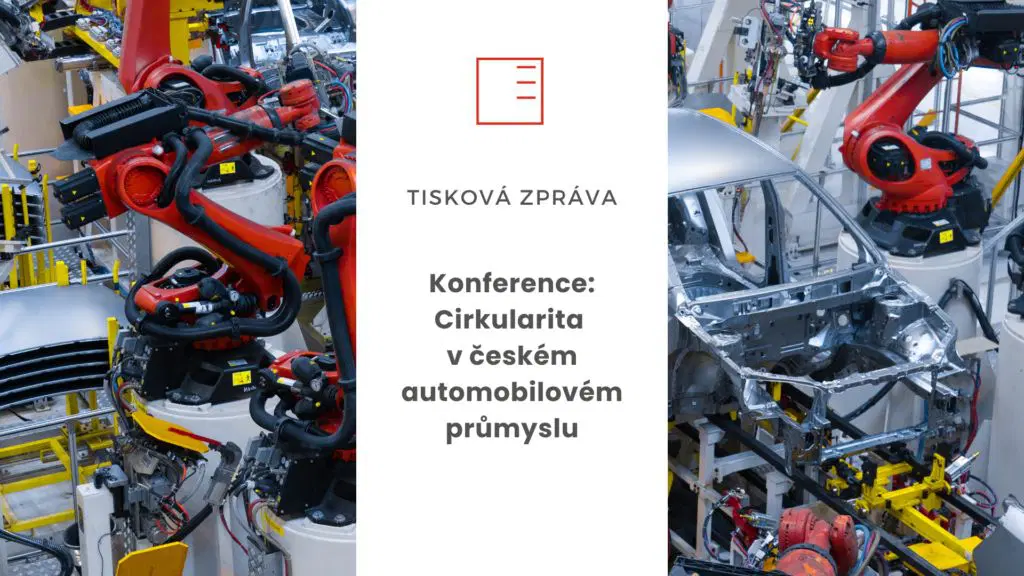
Press Release | Circular economy as a challenge for the Czech automotive industry
More info 24. 10. 2024
24. 10. 2024
On Thursday, 17 October 2024, EUROPEUM Institute for European Policy in cooperation with the Institute for Circular Economy INCIEN organized a conference entitled Circularity in the Czech Automotive Industry: opportunities and obstacles, in which the Czech Battery Cluster was a partner. The conference was attended by representatives of the Czech automotive industry, state administration and research organizations. The press release from the conference and presentations of the organizations can be found in the text below.
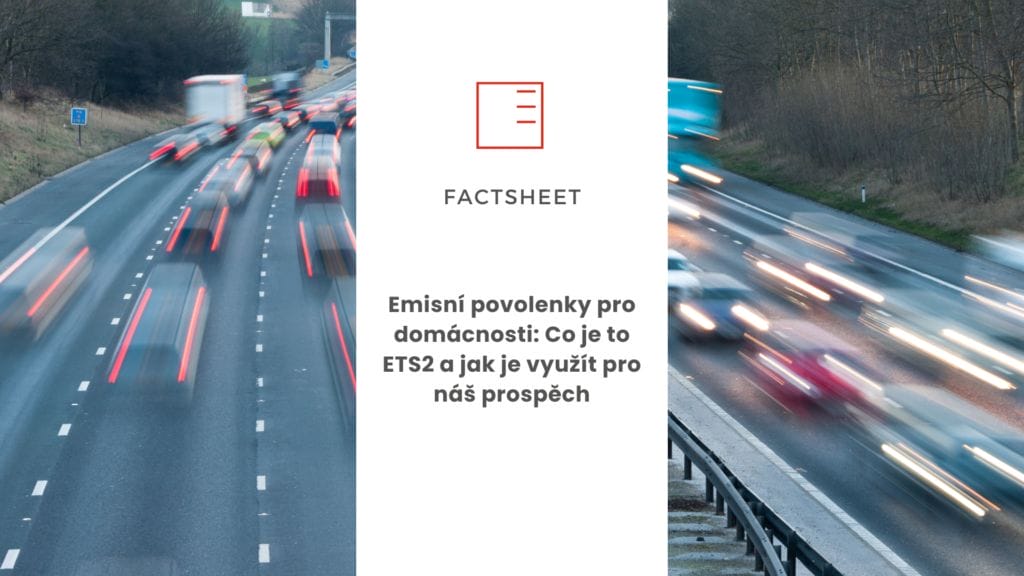
Factsheet | Emission allowances for households: What is ETS2 and how to use it to our advantage
More info 11. 10. 2024
11. 10. 2024
The extension of the emissions trading system for local heating and road transport, the so-called ETS2, is due to come into effect in 2027. ETS2 now needs to be adopted into Czech legislation under the Emissions Trading Act. In this factsheet you will find basic facts and answers to questions that the Czech public often asks. Please also see the attached materials from the organisations that contributed to the factsheet.
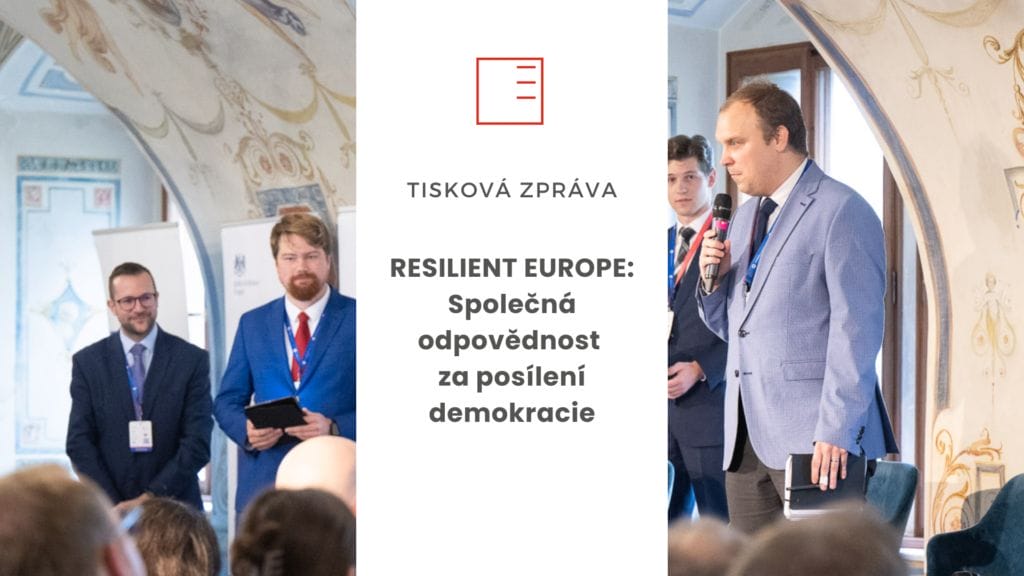
Press Release | RESILIENT EUROPE: A shared responsibility to strengthen democracy
More info 10. 10. 2024
10. 10. 2024
Together with the Association for International Affairs and EUROPEUM Institute for European Policy, the Centre for an Informed Society has prepared a series of Resilient Europe events from 8 to 10 October 2024. This was a forum aimed at strengthening strategic communication and countering disinformation. It aimed to share best practices from different countries and learn from their successes and mistakes in strengthening democratic principles, countering authoritarianism and populism, and uniting society against divisive influences.
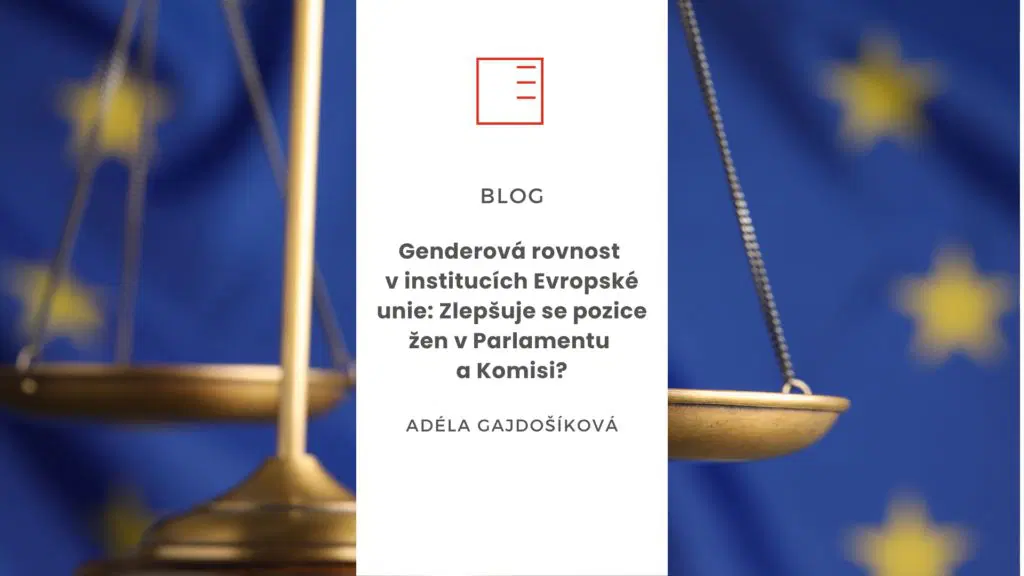
BLOG | Gender equality in the EU institutions: is the position of women in the Parliament and the Commission improving?
More info 27. 9. 2024
27. 9. 2024
Despite the fact that women make up half of the population, they are still not equally represented in the key institutions of the European Union, even in leadership positions. The European Parliament and the European Commission are taking a number of steps to improve gender equality, both internally and towards the public. Adéla Gajdošíková writes in her blog what the current representation in these institutions looks like and what concrete measures they are taking.

Policy paper | Czechia and NATO: Building a more capable, connected and credible European pillar
More info 17. 7. 2024
17. 7. 2024
CEE allies are key to building the capabilities-based, European Pillar NATO needs to enact genuine burden shifting and secure the alliance’s future. Dr Benjamin Tallis shows how Czechia can build on recent progress in defense procurement and increase its influence by prioritising the six elements Euro-NATO needs: core national war-fighting capabilities, logistics, military mobility, strategic enablers, air defence and long-range strategic strike.
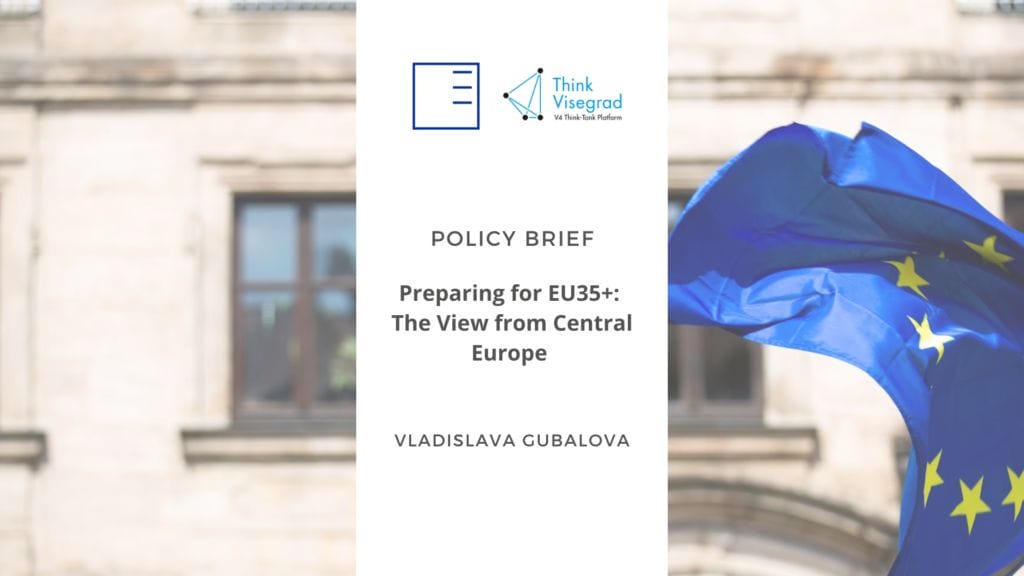
Policy Brief | Preparing for EU35+: The View from Central Europe
More info 8. 7. 2024
8. 7. 2024
Despite the historical support of EU enlargement policy by the Visegrad Four (V4), these Central European states are now faced with the challenge of reconciling their stances with the new realities of the process. As Ukraine and Moldova opened their accession negotiations, the EU seems to be torn on the questions associated with the future enlargement(s) - institutional reforms and changes within the EU budget. Transitioning from economic beneficiaries to potential contributors, the V4 states must evaluate the potential political and economic impacts of new members on both the EU and their domestic levels. Writes and proposes recommendations Vladislava Gubalova from GLOBSEC.
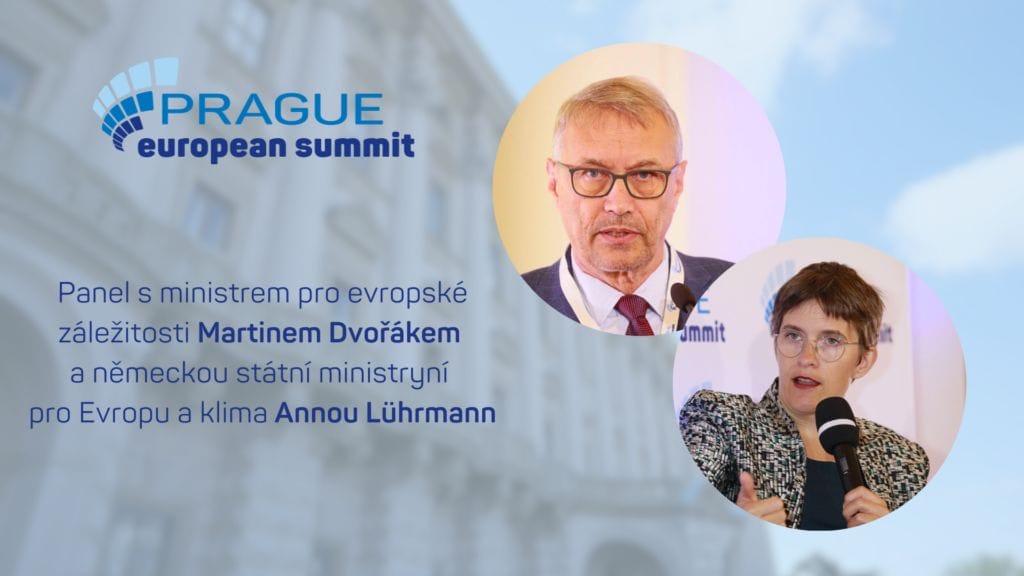
PES 2024 | The EU must cooperate not only militarily, but also to defend itself against cyber attacks from Russia, said Minister Dvořák at the conference
More info 14. 6. 2024
14. 6. 2024
The second day of the Prague European Summit 2024 conference at the Czernin Palace was opened with a speech by Czech Minister for European Affairs Martin Dvořák. He thinks of the enlargement of the European Union as crucial. "We have to realize that the enlargement of the EU, our defense and security and the current Central European position are interconnected," he said.